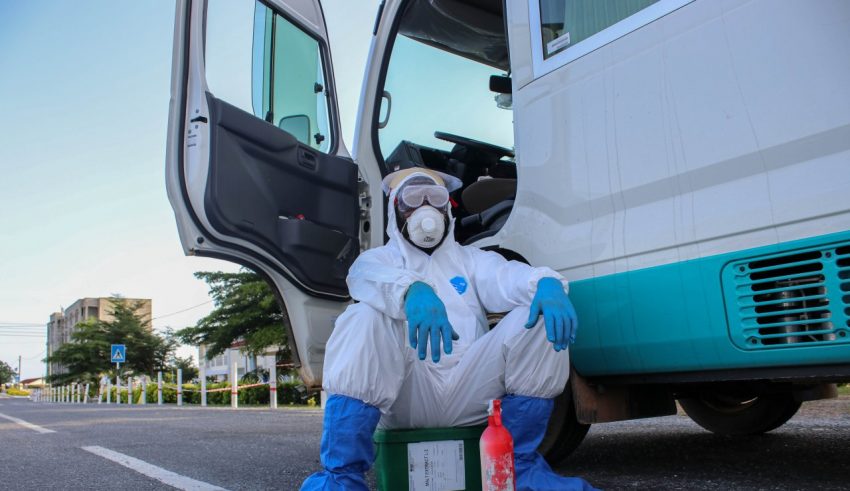
The outbreak of the COVID-19 pandemic has since brought untold changes to everything. Like every medical emergency, a pandemic means there will be some confronting it head-on whereas others will be responding to it from other angles. It is a known fact that our health professionals are those confronting it head-on and are thus, on the frontline of the response. It however does not leave the fact that other professionals make their work a reality.
Addae, a man in his 30s, is a driver with the Ministry of Health in Ghana. I met him at the Pentecost Convention Centre in Gomoa Fetteh, in the Central Region, which is serving as one of the Isolation Centres across the country for the treatment of persons who have tested positive to COVID-19. Although it is natural to be dejected about the turn of events and its effect on social and economic life in the country, he tells me it has brought him closer to his passion—being out there and helping people.
Seated by the door of the driver’s seat of the white Nissan Civilian bus he transports patients in to the Centre, he makes a gesture with his hands in blue gloves to explain that there is a lot of hope. Addae tells me, ‘Though we are all sad, I am living my dream. It has given me an opportunity to contribute to making a change in society.’
He tells me that he loves adventure and being on the countryside. He goes on to tell me, ‘Every now and then, I manage to offer words of encouragement to people I drive to this place.’ He makes me understand that it isn’t easy but important for people to know that the situation will go away.
It is easy to discount his role, but while this pandemic lingers, amid the stigma and reluctance of some to get closely involved in the response against COVID-19, he finds himself at the centre of the pandemic, in a little but significant way. All clad in his Personal Protective gear, he looks at me faintly through the googles and tells me that, “this too shall pass.”
By JP Lawson
Creative Writer and Youth Advocate
© Photo by Julius Mortsi














